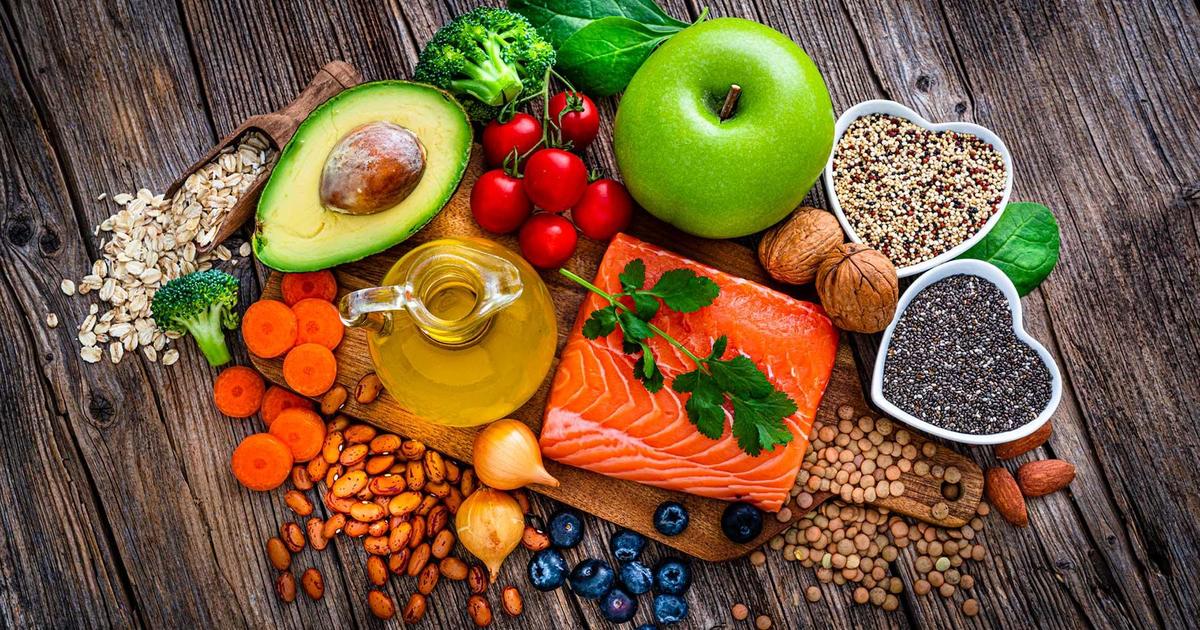
Under all the sparkle and anticipation, New Year’s can be a heavy holiday. The pressure to meet societal expectations of radical transformation can turn excited energy into stress before we even take our first steps into the new year. But I have seen firsthand how small changes make significant impacts. In 2024, I’m advocating for the little shifts and pivots that move us closer to being the best possible version of ourselves. Your diet could be an excellent place to start.
My name is Angela Ginn-Meadow. As an outpatient dietician, I work with patients of all ages to prevent or manage various diseases. I see patients with diabetes, kidney disease, weight-management challenges and even high-risk pregnancies. But the most common disorder I encounter, and the leading cause of death worldwide, is cardiovascular disease.
You might be surprised to learn how profoundly food can impact clinical outcomes, especially regarding the heart. Diet alone can lower your risk of heart disease by 81-94%. A pill can only reduce that risk by 20-30%. So, while we’re looking forward to the new year and contemplating attainable lifestyle changes, I’d love to share a few tips and tricks for cultivating a heart-healthy diet that serves you wherever you are in your wellness journey.
The Fundamentals
A heart-healthy diet is an anti-inflammatory diet. By consuming a variety of nutrient-rich foods that reduce inflammation in the body, you can also reduce your risk of cardiovascular disease, atherosclerosis (hardening of the arteries), hypertension (high blood pressure) and high cholesterol. I have outlined a few fundamental foods below.
• Fruits and vegetables are rich in vitamins, minerals and antioxidants that promote heart health. Aim for a variety of colors to ensure you get a broad range of nutrients.
• Whole grains like brown rice, quinoa and whole wheat contain fiber. I always say fiber acts as life’s broom. It cleans out the gunk, lowers cholesterol levels and aids in achieving a healthy weight.
• Lean proteins can be plant-based or lower-fat animal-based. I recommend nuts, seeds, legumes, fish, seafood and baked or broiled poultry. Fatty fish like salmon and mackerel are excellent choices, as they are high in omega-3 fatty acids known for their heart-protective benefits.
Being intentional about the foods you do not consume can be equally important for developing a heart-healthy diet. Saturated fats, added sugars and excessive sodium are all leading causes of heart disease and other cardiovascular challenges. Whether you struggle to integrate quality ingredients or healthy preparation practices, plenty of alternatives exist.
Practical Tips for Making the Switch
Your heart-healthy diet might look different than mine. And that’s okay! Our environments, cultures, genetic backgrounds and a host of other factors impact our ability to consume the food components outlined above. I hope the tips below will guide you as you curate and customize an approach to heart-healthy eating that works for you.
• While growing your fruits and vegetables is healthy and sustainable, frozen produce is just as nutritious and easier to portion.
• Canned produce is nutritious and cost-effective. Purchase low-sodium options when they are available and rinse your canned produce when they are not. Rinsing removes 30-40% of added sodium.
• Whether your produce is fresh, frozen or canned, it should take up half your plate. Remember to prioritize color!
• Not all fats are created equal. Replace the saturated fats in bacon, sausage and other red meats with heart-healthy fats like those in avocados, nuts, seeds and olive oil.
• Preparation can impact the nutritional value of your meal. For example, removing the skin after cooking chicken can lower your saturated fat intake.
• The links between gut and heart health are becoming increasingly clear. Probiotics and potassium-rich foods typically used to improve gut health can also lower your risk of heart disease and hypertension.
• DASH (Dietary Approaches to Stop Hypertension), Mediterranean and plant-based diets are proven to help prevent cardiovascular disease. Even if these exact diets do not fit into your life, you might draw inspiration.
Beyond the Diet
You don’t need to completely overhaul your life this new year, but your heart health is certainly worth a few shifts and alternatives. The work you do in the kitchen will be incredibly rewarding, and you can grow its impact with a few other lifestyle choices. To improve your heart health through other avenues, you can:
• Aim for at least 150 minutes of physical activity per week
• Quit smoking
• Limit your alcohol consumption
• Practice stress-reducing techniques
• Schedule regular check-ups with your healthcare provider to monitor blood pressure, cholesterol levels and overall heart health
Our LifeBridge Health family wishes you a Happy New Year and a healthy heart!
